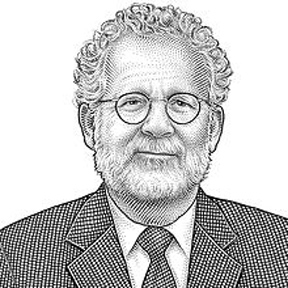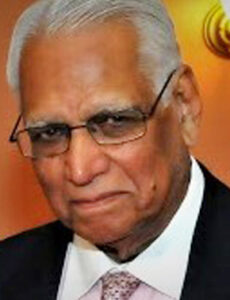

“Americans and Indians often see the same problem in very different ways. India, for example, does not see Russia’s attack on Ukraine as a threat to world order. While Americans have been disturbed by India’s continued willingness to buy oil from Russia, Indians resent the West’s attempt to rally global support for what many here see as a largely Western problem in Ukraine. Pointing out that Europeans scarcely noticed China’s attacks on Indian frontier posts in 2020, Foreign Minister Subrahmanyam Jaishankar told a conference in Bratislava, Slovakia, last week that “Europe has to grow out of the mindset that Europe’s problems are the world’s problems.”
Superficially, the U.S.-India relationship looks like a success. With both countries focused on China, business ties steadily deepening, and U.S.-Pakistan relations in a deep freeze, many of the old obstacles to the relationship have disappeared.
But an intense week of meetings in Bangalore and Delhi with politicians, think tankers, religious leaders and journalists made clear that while Americans and Indians share strategic and economic interests, and we both value democracy, we remain divided by important differences in values and perceptions. Unless managed carefully, these differences could derail U.S.-India cooperation at a critical time. Americans and Indians often see the same problem in very different ways. India, for example, does not see Russia’s attack on Ukraine as a threat to world order. While Americans have been disturbed by India’s continued willingness to buy oil from Russia, Indians resent the West’s attempt to rally global support for what many here see as a largely Western problem in Ukraine. Pointing out that Europeans scarcely noticed China’s attacks on Indian frontier posts in 2020, Foreign Minister Subrahmanyam Jaishankar told a conference in Bratislava, Slovakia, last week that “Europe has to grow out of the mindset that Europe’s problems are the world’s problems.”
More generally, Indians bristle when they sense Americans and Europeans getting together to write global rules. The more that American Wilsonians talk about a values-based international order, the more that Indians worry about Western arrogance. Many Indians want a strong Russia and, within limits, a strong China precisely to help guard against the kind of world order President Biden and many of his advisers want to build.
This is more than the postcolonial suspicion of Western intentions that India has long shared with many other non-Western countries. The Hindu nationalist movement that has replaced the long-ruling Congress Party with a new political system built around the Bharatiya Janata Party and its charismatic leader, Narendra Modi, has brought a new dynamism to Indian foreign policy. This new nationalist India wants to increase and develop Indian power, not submerge Indian sovereignty in Western-designed international institutions.
The domestic agenda of the Hindu nationalist movement can also cause problems for the U.S.-India relationship. For Hindu nationalists, the rule of the Muslim Mughal emperors, some of whom destroyed ancient Hindu temples and built mosques on their ruins, was as much a disaster as British colonialism for Indian civilization. It is not enough to send the British packing; the liberation of India means placing Hindu civilization back at the center of Indian cultural and political life. Many BJP supporters want the Indian government to defend India’s Hindu civilization and culture from Islam, Christianity and Western secular liberalism.
This form of Hindu nationalism leads to controversial policy initiatives. Tough restrictions on the ability of foreign organizations to fund civil-society groups in India threaten to disrupt the activities of American charities ranging from the Ford Foundation to the Catholic Church. Anti-conversion laws put obstacles in the path of both Christian and Muslim missionary efforts, and Hindu women wishing to marry out of the faith sometimes face severe social and governmental pressures. Communal violence, a problem in India since the days of the British raj, has risen in recent years. Indian Muslims often express fears for their personal security.
American human-rights groups have responded to these developments with increasing concern, and last week Secretary of State Antony Blinken named India as a country “where religious freedom and the rights of religious minorities are under threat.” Such statements do more to trigger anticolonial and anti-Western sentiments than to relieve minority communities. Hindu nationalism is, among other things, a demand that Indian civilization be accepted as the moral and spiritual equal of the West. America has its racial problems and mass shootings, Indians say. What gives Americans the right to tell India how to live?
These conflicts aren’t going away and will likely get worse over time. Hindu nationalism is here to stay. So are India’s communal tensions, and so too for that matter is the belief of many Americans that they have a solemn duty to tell people in other countries and cultures how to live—and to impose sanctions on those unhappy occasions when they fail to take our advice. If bilateral relations are to prosper, Indians and Americans need to find better ways to manage these chronic issues.
India and the U.S. are raucously democratic societies, and their foreign policies cannot ignore public opinion. Managing this critical relationship is never going to be easy. Building deeper ties between the two societies will help; so too will quiet, low-key conversations aimed at preventing blowups before they occur. Both sides need this relationship; we both need to focus on making it work.
(Source: Wall Street Journal)
A former Indian diplomat Venkatachalam Parameswaran who has spent decades working with senior Indian political leaders like Krishna Menon, and at the United Nations, commented on Mead’s article. His comments are worth considering.

”As an Indian American, I have been here for 68 years. I have been a serious student of international relations. Mead’s column on India has given us the opportunity to reevaluate US-India relations. If we know how to build mutual trust, we will be on the road to success. America has refused to take India into confidence and vice versa. India is right to point out America’s blunders in Asia and South Asia. Asians should not have allowed the US to wage war against Vietnam for ten years. Secretary of Defense McNamara confessed ten years after the war. The second Iraq war to change regime was another multitrillion dollar disaster. The US has no locus standi to pontificate on what is “world order” and it has been responsible for the mess it has created. Arrogance of power will not be accepted and cannot win.
“The US and India can build mutual trust provided the US is ready and willing to embrace democracy. The US, UK, France, and Russia must admit India as a permanent member of the UN Security Council. It can be done if these really want this to happen.
India needs level playing field for international migration. India is a major investor in the USA but has been stifled by visa policies that prevent Indians to hire Indians from India.
India’s import of oil from Russia is a small fraction of what Europe imports even today.
The US must stop pontificating on so called “human rights” before cleaning up the USA.
India does not want a strong China — I disagree.”





Be the first to comment